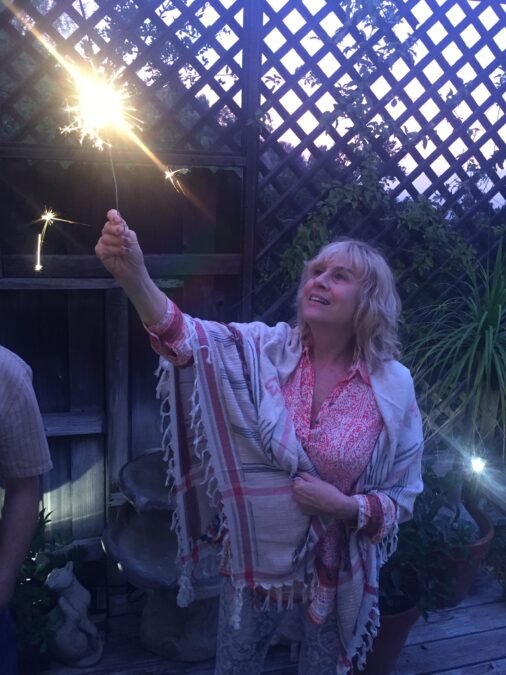A friend of mine was on a spiritual retreat, facilitated by a guru who claimed to always be happy. He expected everyone else to be happy, too, so if a follower appeared to be sad or angry, he invited them to leave. One day, my friend was hungry and he headed for the
kitchen. He paused at the door. The guru was making himself a sandwich and my friend stood at the doorway, out of sight, and he watched. When the holy man was ready to eat, he opened the refrigerator door to get something to drink. He closed the door, went back to the counter and his sandwich was gone. A dog had jumped
up and stolen it and he was in the process of chomping it down. The “happy” man looked to the right and looked to the left. When he was sure no one was watching, he kicked the dog.
The consensus opinion among people who are “seeking enlightenment,” is that choosing the high road, being loving and joyful is spiritual and being angry or sad is not. This belief causes
things like the paragraph above. When we’re angry or disappointed, when we feel betrayed or belittled, if we think we can overlook these feelings and skip straight to joy and acceptance, we’re skipping a step. Forgiveness and acceptance are processes. It takes practice and courage to admit we’re feeling angry or resentful and accept the truth of how we really feel. Forgiveness is a worthy goal. It can lighten your heart and ease your pain. Eventually it probably will, but expecting it to show up immediately is not only unrealistic. It’s foolhardy, like trying to go from A to Z without dealing with what’s in
between.
I was visiting with a girlfriend who was in turmoil. She found out that her boyfriend had been cheating on her repeatedly and she had shown him the door that morning. Initially, she had felt relief but now, she was struggling.
“You must be really angry,” I said.
“I don’t want to be angry.” Tears streamed down her face. “I know I shouldn’t hold it against him. I should forgive him.”
“Why? This is only Day One,” I said. “You need to feel your feelings. Give yourself some time.”
“But I want to be spiritual.”
The first of the four noble truths
in Buddhism is that suffering is an inherent part of life. If someone claims to be happy and compassionate all the time, they aren’t being mindful and aware. We live in a world of duality. While we sometimes have joy and love, we also experience pain and suffering. While we sometimes stand in the light, we also find
ourselves in the darkness. When things are hard, we can rest in the knowledge that everything keeps on changing.
When I was six, my father woke me up while it was still dark and drove me to a small hill beside the local airport. We were about to witness an eclipse of the sun and he explained it to me. “When
the sun starts to come up,” he said, “the moon is going to cover it and it’ll get dark again. And then the light will come back.”
I looked up as a faint glow appeared along the horizon, lighting up the edges of the world. It was sunrise and my father’s upturned face became a silhouette against the lit up sky. I reached my arms up to the sky, stretching out my fingers toward the light but in a minute it was dark. And then the light returned. I had just learned that we can’t have one without the other.
According to my understanding, accepting what is, is spirituality. It isn’t about being on the high road and never wavering. It isn’t about forgiving when you feel resentful or smiling when you’re in a rage. It isn’t about pretending you’re in the light when you’re surrounded by darkness. It’s about being honest and authentic without judgments. It’s about accepting however you are, wherever you are, even if you
don’t like it.
It’s uncomfortable to be with our anger. We feel like we’re stumbling around with little control over our thoughts. But when we turn away from ourselves and repress our real feelings, we get depressed and anxious and often, our upset explodes on someone else. When we
block the things that cause us suffering, we also block the love that sustains us.
When you feel betrayed or diminished by someone or something, the high road is not always available. Buddhist nun, Pema Chodron, tells us we can start wherever we are. A woman I know has
become rigid and frightened as she ages because she refuses to admit to her frailties. She fancies herself a teacher of consciousness but during the years I’ve known her, she has let her anger stop her from being vulnerable. Because of this, she has distanced most of her friends. She remains stuck because she lives in a state of victimhood. It’s always someone else’s fault, and her shame keeps her truth hidden. When we have the courage to face the truth about
ourselves, we can find the compassion and strength to breathe, to release, to inch our way up the ladder and start and reaching for the stars.


Recent Comments